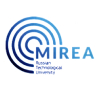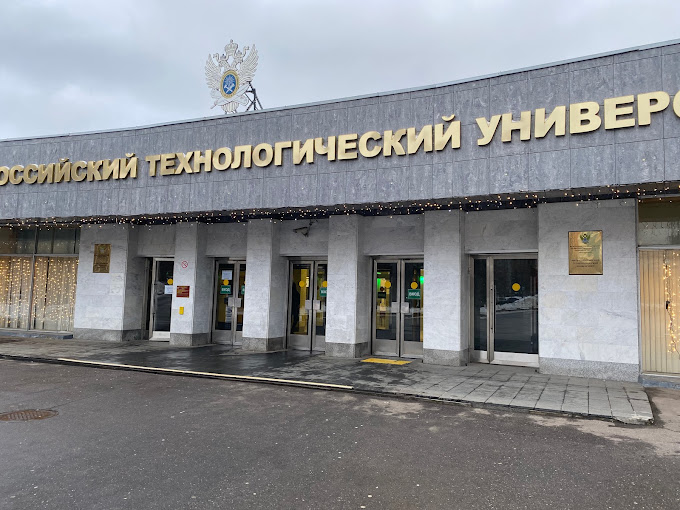Prospekti Vernadskogo, 78, Moscow 119454, Russia
Career Counselling

RTU MIREA is a modern technical research University located in Moscow, Russia. Established in 1947, it has steadily grown to become one of the largest engineering education and research universities in Europe. It has continued to conduct intensive research in important fields of science and engineering, from Cybernetics to Nanotechnology and Biotechnology.
MIREA has seven campuses spread across Moscow, with four state of the art sports complexes, scientific libraries, and six dormitories for both domestic and international students.
| Establishment year | 1947 |
| Total Students | N/A |
| International Students | 1,200+ |
| QS World University Rankings 2024 | 1401+ |
| Campus Size | N/A |
| Total Number of Campuses | 7 campuses in Moscow + 2 branches (Stavropol, Fryazino) |
| University Website | https://english.mirea.ru/ |
| No. of Schools and Divisions | 8 Institutes |
| Nobel Prize Winner Alumni | 0 |
| No. of Education Programs | 38 (undergraduate), 37 (Master’s) |
| Student to Faculty ratio | 2000+ staff members |
MIREA offers undergraduate and postgraduate courses through 8 Institutes:
Undergraduate applicants to MIREA must satisfy the following requirements:
Master’s degree applicants must satisfy the same eligibility criteria as those listed above for bachelor's degree candidates; however, the degree certificate and transcripts must be from their own undergraduate education from a recognized global university.
Every course has a set of entrance examinations that are mandatory for applicants to prove their expertise in prerequisite subjects. A full list can be found on the relevant University webpage; most programs require entrance tests to be taken in Mathematics and the Russian Language, with the third examination varying based on the subject of the degree.
International applicants to MIREA must submit their applications to the Institute of International Education at the University. The documents to be submitted are listed in the Eligibility Criteria above; in addition, applicants must also send in six identical recent photographs of themselves, all of which are 3 cm x 4 cm in size.
The University carefully scrutinizes all submissions, and may shortlist candidates for a further entrance test in some Institutes. Once the final invitations are sent out to successful applicants, and the Russian visa has been obtained, the candidate must submit the following documents to the Institute of International Education upon arrival at RTU MIREA:
Once these formalities are completed and the first year’s fees are paid, the student can commence his or her degree.
Undergraduate tuition fees for international students at MIREA vary according to the course:
Tuition fees for Master’s degree programs at MIREA are as follows:
Depending on the hall of residence chosen (international students have a choice to live in Dormitory 1 or 5), accommodation costs can range from 863 rubles to 5,289 rubles per month. The maximum spending on this is therefore about 52,800 rubles per year, for ten months spent at the University. Students must also budget for food, travel, and personal costs.

The Russian Technological University has seven campuses in the city of Moscow. Across these campuses, there are four modern sports complexes, and a total of six dormitories to satisfy all student accommodation needs. Access to cutting edge equipment in the laboratories is provided both by the University funds and through investment by partner organizations. Most of the locations house a different Institute. The list of the campuses within Moscow is as follows:
Health and fitness are given high priority at RTU MIREA. The University has four well equipped sports complexes that house two gyms, indoor sports arenas (including volleyball, table tennis, basketball, and badminton), a large stadium, multiple football fields, and five sports grounds that can be used to play different sports. There is also a swimming pool inside the University premises, as well as a climbing wall. More than 15 different sports can be played at the University, and there are student clubs that organize regular training sessions and friendly matches.
There are several cultural and recreation zones at all seven campuses, where students can come together in small or large groups to create art, pursue their passion for music, or work on theatrical productions. For large performances, there are multiple concert halls available on and off campus. There is even a Cybersport Center for fans of online gaming to meet like minded students.
A unique area at the University is the Altair Children’s Technopark, where students of MIREA create exhibits and learning zones designed to inspire children in Moscow to visit and learn more about high level research and development efforts.

The Career Center at MIREA has two main functions: to ensure that all students of the University are able to get the best jobs possible, and to allow dedicated entrepreneurs to fund and implement their business ideas. To realize the former aim, it carries out the following functions:
The efforts of the Career Center have been crowned with success; more than 80% of recent graduates who wish to find a job are able to do so within a year of leaving the University.
Even though the cost of education at RTU MIREA is very reasonable, there are scholarships available to further reduce the tuition cost.
The primary form of financial aid for international students at MIREA is through State Funded Scholarships. The Russian Government allocates a certain number of places within each program for foreign students to pay state funded tuition fees (which are far less than full international fees). International applicants to highly competitive courses will need to prove their academic excellence and research potential during their application and entrance test so as to qualify for the scholarship, based on the number of spaces budgeted by the Ministry of Science and Higher Education of the Russian Federation.
